News
-
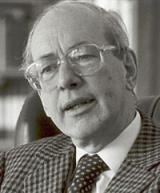
Since its beginning, Edy Korthals Altes (1924) was an active and enthusiastic friend of the SPES-forum and the European SPES Institute. He was the eldest active member of SPES. During the Annual SPES Conference in Ypres, Belgium (April 10-12, 2014) he presented a paper which is representative for his lifelong commitment A Culture of Peace: Common Ground for Joint Action ‘ (published in Business, Ethics and Peace, Emerald, 2015, pp. 75-86). Until the end of his life he was a fighter for peace. He passed away on the Christian Day of Peace, December 25, 2021 at the age of 98.
His life is a source of inspiration and hope for all of us. He started his career as a Dutch diplomat, with a degree in economics, who served as Deputy Permanent Representative at the EEC in Brussels, and as Ambassador in Warsaw, and finally Madrid. He resigned in 1986, in connection with his public stance on the arms race. Since then, he has been an outspoken proponent of global peace and security, inter-religious cooperation, and spiritual renewal as Vice Chairman of the Dutch chapter of the Pugwash Movement (1987-’95), Chairman of the Section International Affairs of the Netherlands Council of Churches (1990-’96), Co-president of the European Ecumenical Commission on Development, EECOD,1991-’93, and President of the World Conference of Religions for Peace (1994-’99). He was a fellow of the World Academy of Art and Science and fellow of the European SPES Institute. His publications include Heart and Soul for Europe: An Essay on Spiritual Renewal (Van Gorcum Ltd, Assen,1999) and Spiritual Awakening: The Hidden Key to Peace and Security, Just and Sustainable Economics, Peeters Publishers, Leuven (2008).
Remember him as a man of Hope!
Luk Bouckaert, January 2, 2022
-
Laszlo Zsolnai gave a lecture in the “Happiness Talk Series” of Rekhi Centre for The Science of Happiness at the Indian Institute of Technology, Kharagpur on October 30, 2021. He introduced the Western (Aristotelian) and the Eastern (Buddhist) conceptions of happiness and discussed the contemporary approaches to wellbeing. He argued that the purpose of the firm should be redefined. Instead of maximizing profit, firms should maximize the wellbeing of all the stakeholders. He presented cases of successful working models of wellbeing oriented organizations.
-
SPES Pre-Conference Online Workshop: Nurturing the Place and its Communities, May 20, 2021.
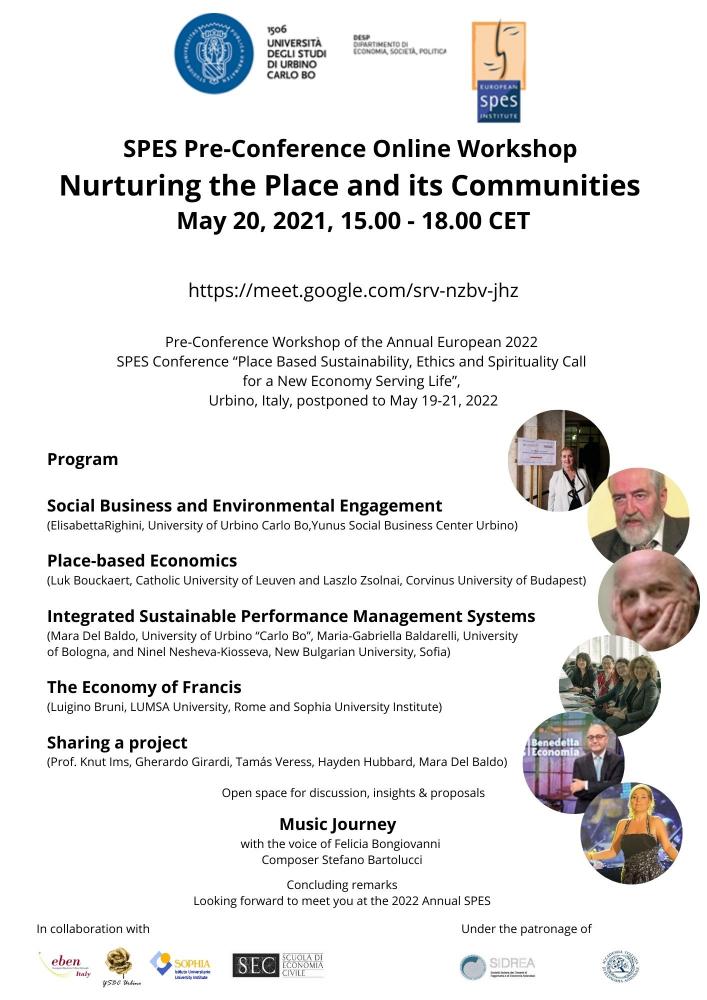
-
Under the leadership of Laszlo Zsolnai the Economy & Religion Program has been established at the Corvinus Institute for Advanced Studies, Corvinus University of Budapest in February 2021. The Economy & Religion Program aims to explore and study the multiple roles that religion/spirituality plays in the functioning of the economy. It focuses on the contemporary issues of capitalism in relation to ethics and morality, ecology and sustainability, and social inequality and cultural diversity. It fosters the spirit of open dialogue that seeks collaboration across disciplines, cultures, and faith traditions.

-
The Macau Ricci Institute at the University of Saint Joseph, Macau published The Macau Manifesto for The Economy of Francesco Conference in November 2020. It is a synthesis of thinking towards the New Economic Paradigm based on three underlying principles, namely subsidiary economics, wellbeing for all, and common good entrepreneurship.

-
In 2021 the Business Ethics Center will start a PhD Specialization in Business Ethics and Spirituality within the Doctoral School of Business and Management of the Corvinus University of Budapest. The PhD Specialization consists of two interrelated modules: Business Ethics & Ethical Business, and Religious Economic Thought & Spiritual Business Models.

-
From January 15 - February 5, 2021 Paul Shrivastava (Penn State University), Eleanor O'Higgins (University College Dublin), Peter Pruzan (Coepnhagen Business School) and Laszlo Zsolnai teach a webinar series on Ethics, Sustainability and Spirituality at the S.P. Jain Institute of Management and Research in Bombay, India.
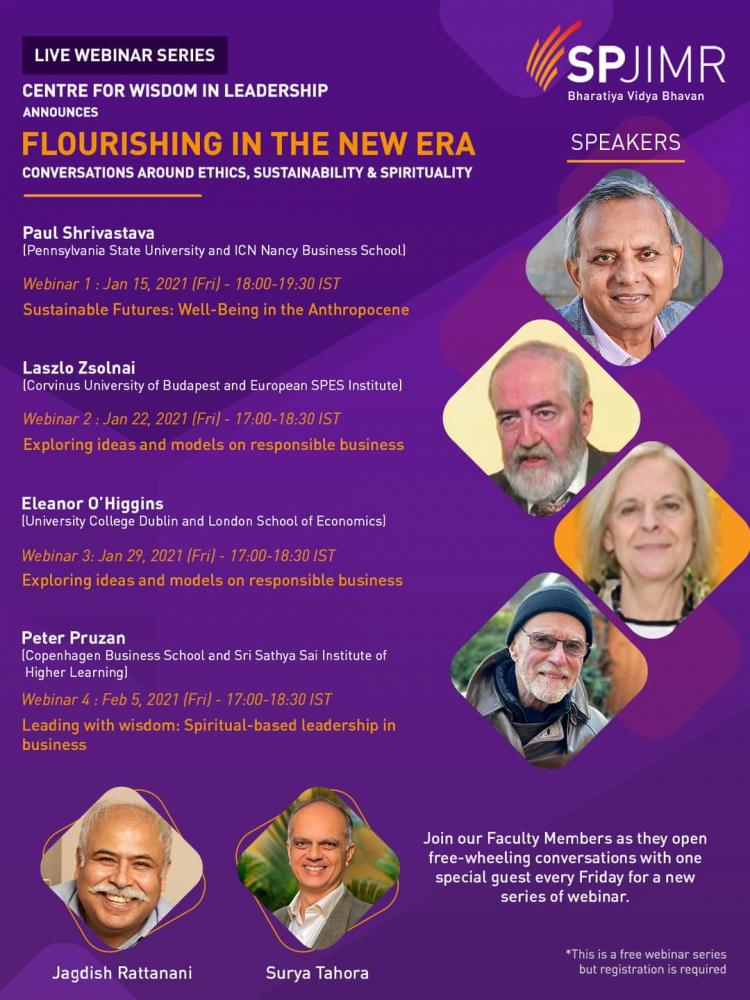
-
The slides summarizes the main projects and publications of the European SPES Institute in 2015-2020.
-
Sharda Nandram, member of the Steering Committee of the European SPES Institute has been appointed as Professor of Hindu Spirituality and Society at the Faculty of Religion and Theology of the Free University of Amsterdam. Her inauguration lecture entitled “Integrative Spirituality in the Fourth Industrial Revolution: From How We Do Things to Why We Exist” was presented on November 21, 2019.
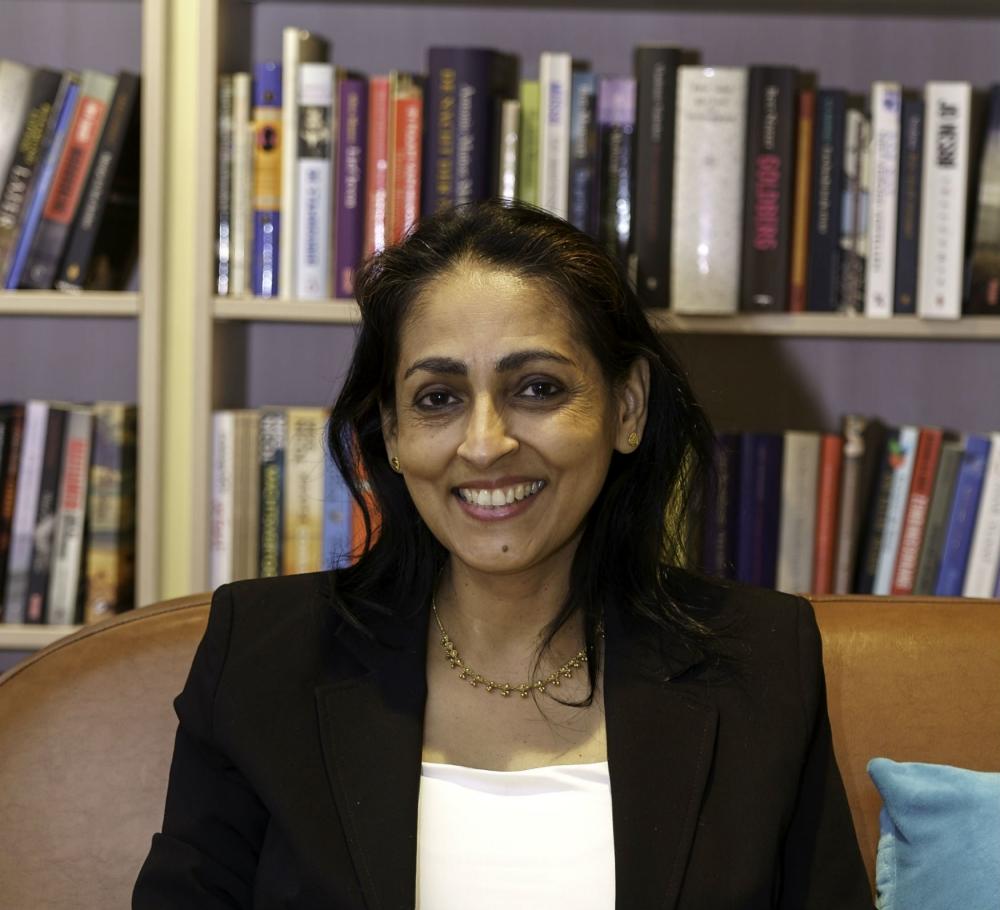
-
For good or ill, the capitalism we have, is the capitalism we have chosen, says Dr. Kenneth Barnes, Professor of Workplace Theology and Business Ethics at Gordon-Conwell Theological Seminary and Fellow of the European SPES Institute. Capitalism works, but not for everyone, and the challenge before us is not to change its structure but to address the moral vacuum at the core of its current practice. In Redeeming Capitalism Barnes explores the history and workings of this sometimes-brutal economic system. He investigates the effects of postmodernism and unpacks biblical-theological teachings on work and wealth. Barnes envisions a more just and flourishing capitalism built not on the folly of naked self-interest, but on the sure foundations of faith, hope and love.
-
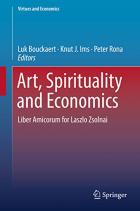 This volume celebrates the work of Laszlo Zsolnai in the field of the ethical and spiritual aspects of economic life, who has made significant contributions to the connection between ethics, spirituality, aesthetics and economic theory. The book offers a selection of essays concerned with the ethical, spiritual and aesthetic context within which economics as a social studies discipline should be situated in order to avoid the sort of dehumanizing consequences that theories based on utility maximization and rational choice necessarily entail.
This volume celebrates the work of Laszlo Zsolnai in the field of the ethical and spiritual aspects of economic life, who has made significant contributions to the connection between ethics, spirituality, aesthetics and economic theory. The book offers a selection of essays concerned with the ethical, spiritual and aesthetic context within which economics as a social studies discipline should be situated in order to avoid the sort of dehumanizing consequences that theories based on utility maximization and rational choice necessarily entail. -
Our friend and colleague, Professor Rita Ghesquière passed away on March 12, 2018. She was professor of World Literature at Catholic University of Leuven for decades. Rita was involved in the European SPES from the very beginning. She contributed to many projects of the European SPES Institute. Her publications cover the intersections of literature, spirituality, leadership and ecology. One of her special interests was to study different art forms of angels.
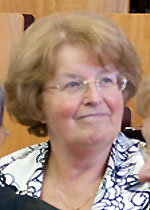
-
On May 4, 2017 Peter Rona and Laszlo Zsolnai presented their book on Economics as a Moral Science at Blackfriars Hall, University of Oxford. The presentation was introduced by Richard Finn, OP, the Director of Las Casas Institute for Social Justice.
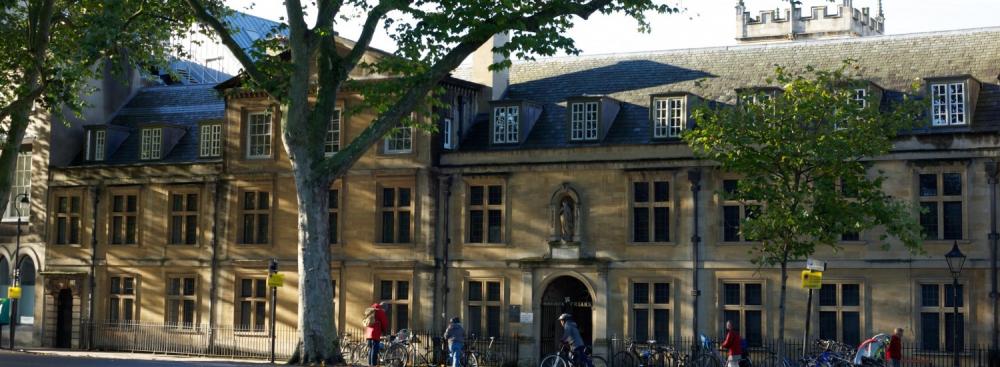
-
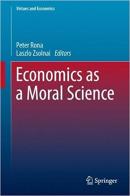 Economics as a Moral Science has been published by Springer. The book is an attempt to reclaim economics as a moral science. It argues that ethics is a relevant aspect of all levels of economic activity, from individual and organizational to societal and global. Taking ethical considerations into account is needed in explaining and predicting the behavior of economic agents as well as in evaluating and designing economic policies and mechanisms. The book employs the personalist approach that sees human persons with free will and conscience as the basic agents of economic life and defines human flourishing as the final end of economic activities.
Economics as a Moral Science has been published by Springer. The book is an attempt to reclaim economics as a moral science. It argues that ethics is a relevant aspect of all levels of economic activity, from individual and organizational to societal and global. Taking ethical considerations into account is needed in explaining and predicting the behavior of economic agents as well as in evaluating and designing economic policies and mechanisms. The book employs the personalist approach that sees human persons with free will and conscience as the basic agents of economic life and defines human flourishing as the final end of economic activities. -
Luk Bouckaert published a booklet in Dutch with Pax Christi on Business for Peace (“Ondernemen voor vrede”) in which he introduces the Ypres Manifesto and presents the European SPES Institute.
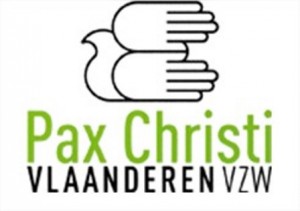
-
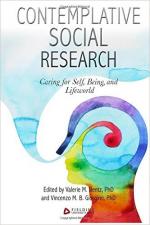 Contemplative Social Research brings together research and insights from scholars throughout Europe and North America, and from a variety of social science disciplines. The book argues that contemplative-based inquiry is unique in recognizing the deep oneness of humanity, since it requires embodied awareness as well as openness to the transpersonal dimensions of the human experience. No single discipline can deal with such vitally important issues as climate change, growing social inequalities, or the social impact of new digital technologies. Consequently, the book argues that only a contemplative vision that pushes the boundaries between disciplines and cultures can extend and broaden the social and human sciences.
Contemplative Social Research brings together research and insights from scholars throughout Europe and North America, and from a variety of social science disciplines. The book argues that contemplative-based inquiry is unique in recognizing the deep oneness of humanity, since it requires embodied awareness as well as openness to the transpersonal dimensions of the human experience. No single discipline can deal with such vitally important issues as climate change, growing social inequalities, or the social impact of new digital technologies. Consequently, the book argues that only a contemplative vision that pushes the boundaries between disciplines and cultures can extend and broaden the social and human sciences. -
 Springer launches a new book series entitled „Virtues and Economics”. Series editors are Peter Rona (Blackfriars Hall, University of Oxford)and Laszlo Zsolnai. The series is dedicated to virtue ethics and economics. The goal is to help develop a virtue-based economic theory which connects virtues with the contents of economic activities of individuals, unincorporated and incorporated economic agents. The primary context is Catholic Social Teaching but other faith traditions (especially Judaism, Islam, Hinduism, Buddhism, and Confucianism) will also be explored for their construction of virtues in economic action.
Springer launches a new book series entitled „Virtues and Economics”. Series editors are Peter Rona (Blackfriars Hall, University of Oxford)and Laszlo Zsolnai. The series is dedicated to virtue ethics and economics. The goal is to help develop a virtue-based economic theory which connects virtues with the contents of economic activities of individuals, unincorporated and incorporated economic agents. The primary context is Catholic Social Teaching but other faith traditions (especially Judaism, Islam, Hinduism, Buddhism, and Confucianism) will also be explored for their construction of virtues in economic action. -
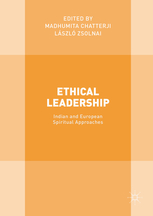 The book contains selected papers presented at the international conference coorganized by the European SPES Institute and IFIM Business School in Bangalore, India on January 9-10, 2014. Addressing issues of human values, ethics, spirituality and leadership in business the authors of this volume create a dialogue and interchange between Indian and European cultural traditions. Topics include spiritual orientations to business in Hindu, Buddhist and Christian traditions; the effect of spirituality upon contemporary leadership theories; sustainable business models in India and Europe and a comparison between Indian and European philosophies of leadership.
The book contains selected papers presented at the international conference coorganized by the European SPES Institute and IFIM Business School in Bangalore, India on January 9-10, 2014. Addressing issues of human values, ethics, spirituality and leadership in business the authors of this volume create a dialogue and interchange between Indian and European cultural traditions. Topics include spiritual orientations to business in Hindu, Buddhist and Christian traditions; the effect of spirituality upon contemporary leadership theories; sustainable business models in India and Europe and a comparison between Indian and European philosophies of leadership. -
Sander Tideman published a new book entitled “Business as an Instrument for Societal Change: In Conversation with the Dalai Lama” (Greenleaf Publishing, 2016). The book is the result of two decades of research and dialogue with His Holiness the Dalai Lama and other leaders in business, government, science and education. Sander Tideman who has maintained a friendship with the Dalai Lama over all these years, presents a practical framework and methodology to develop a new kind of leadership – one fit to repurpose the business world and tackle escalating social, economic and environmental needs.
-
Jean-Paul Close published a Whitepaper on Wellness on behalf of STIR Foundation. The whitepaper presents a framework for developing human, environmental and economic resilience.
